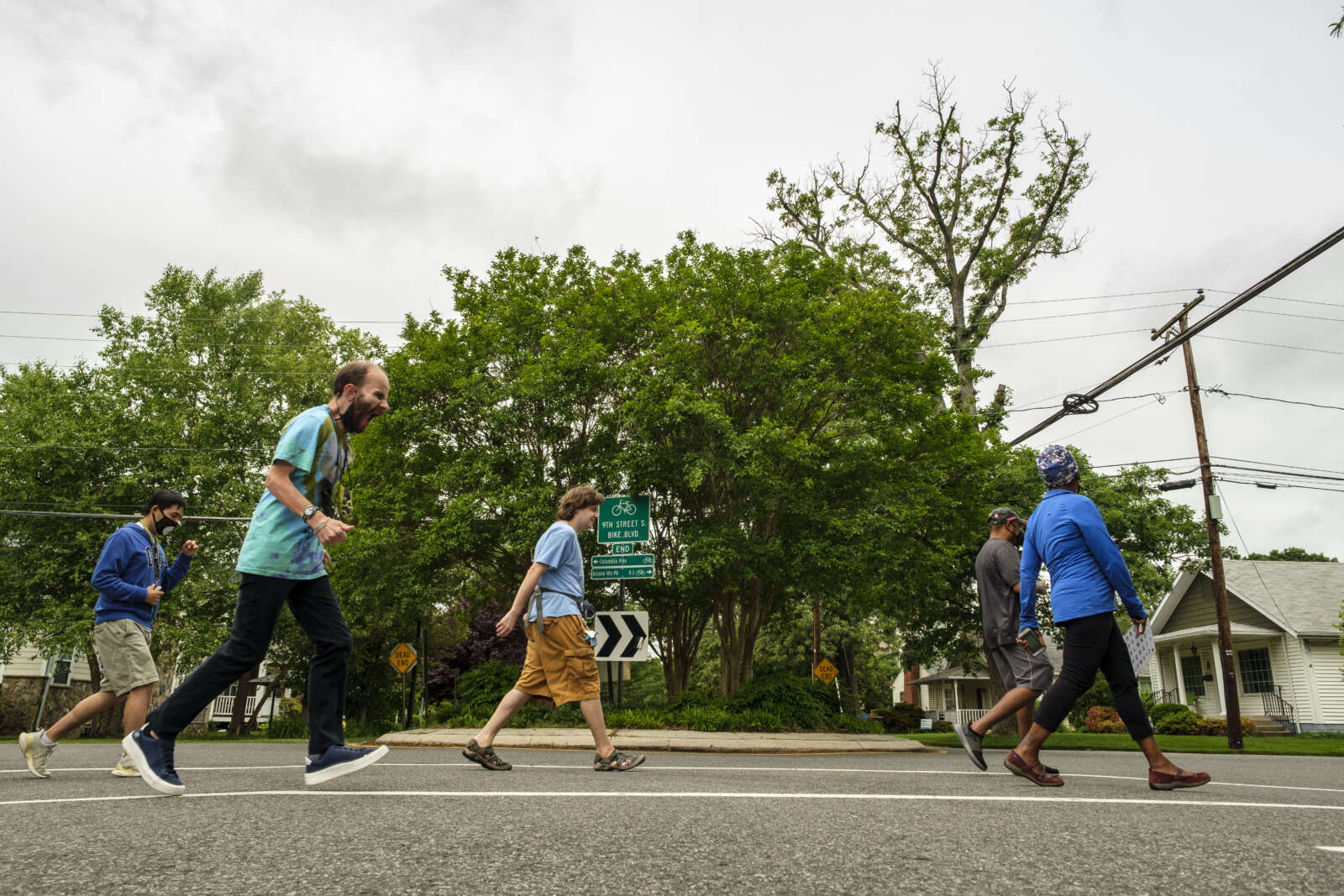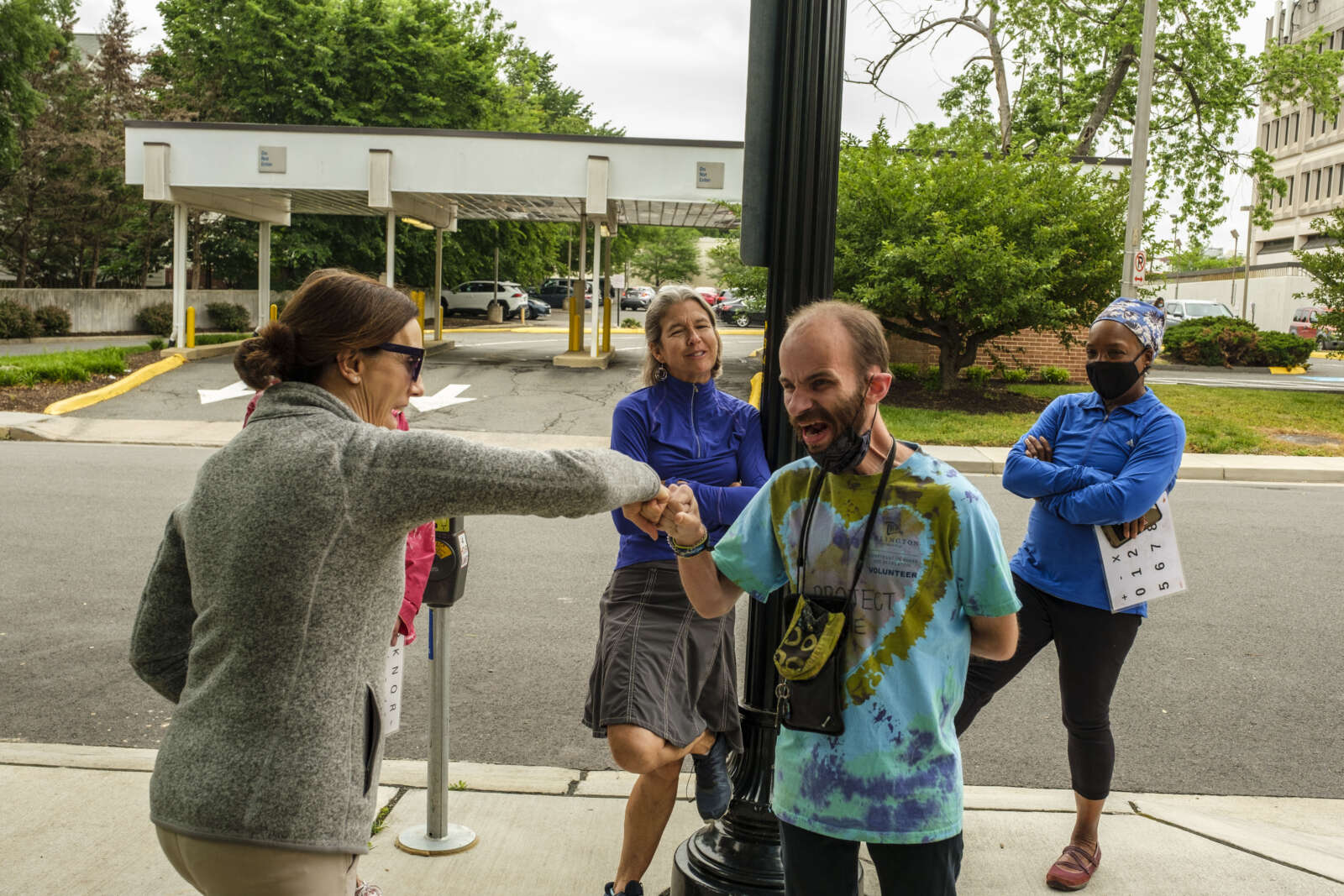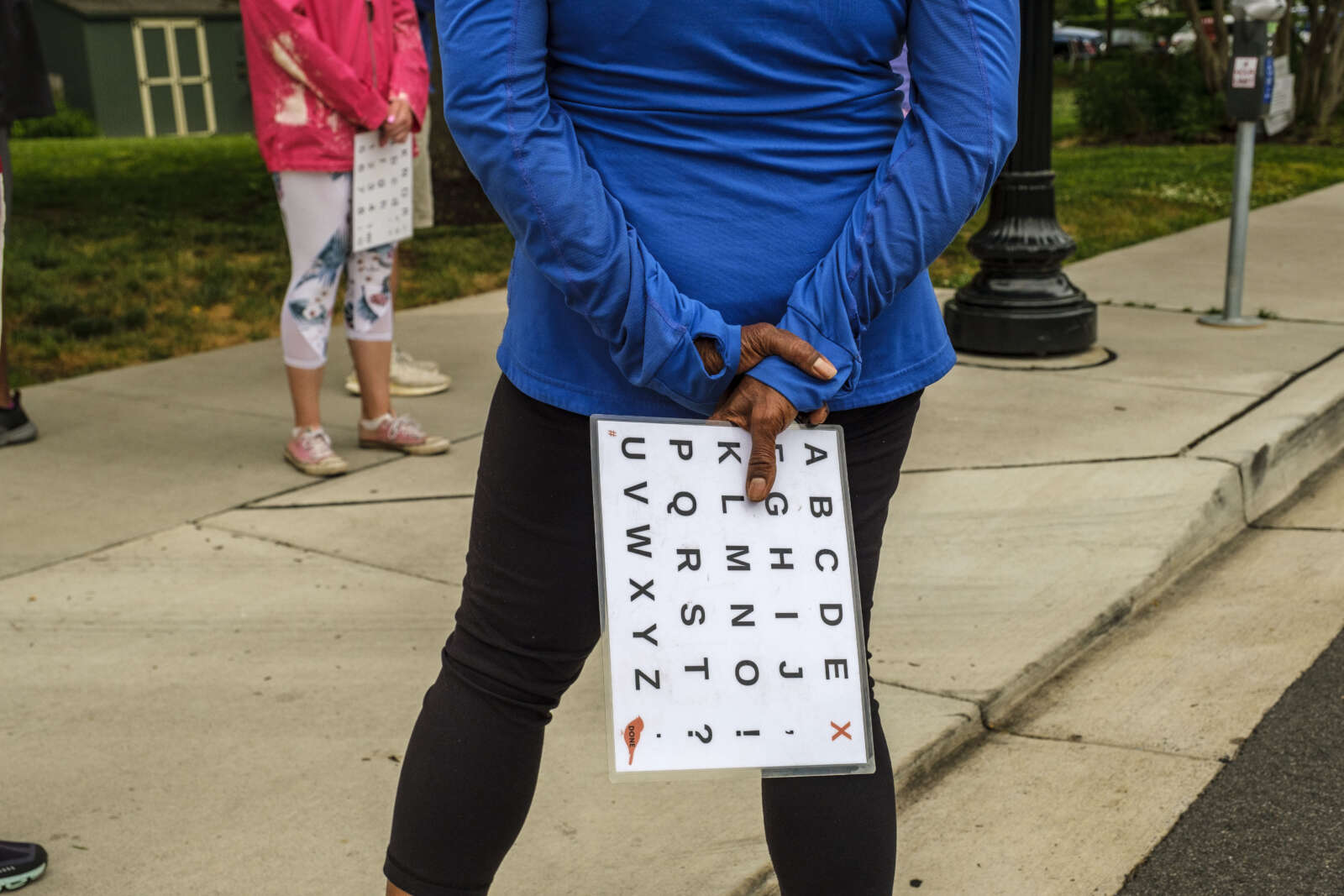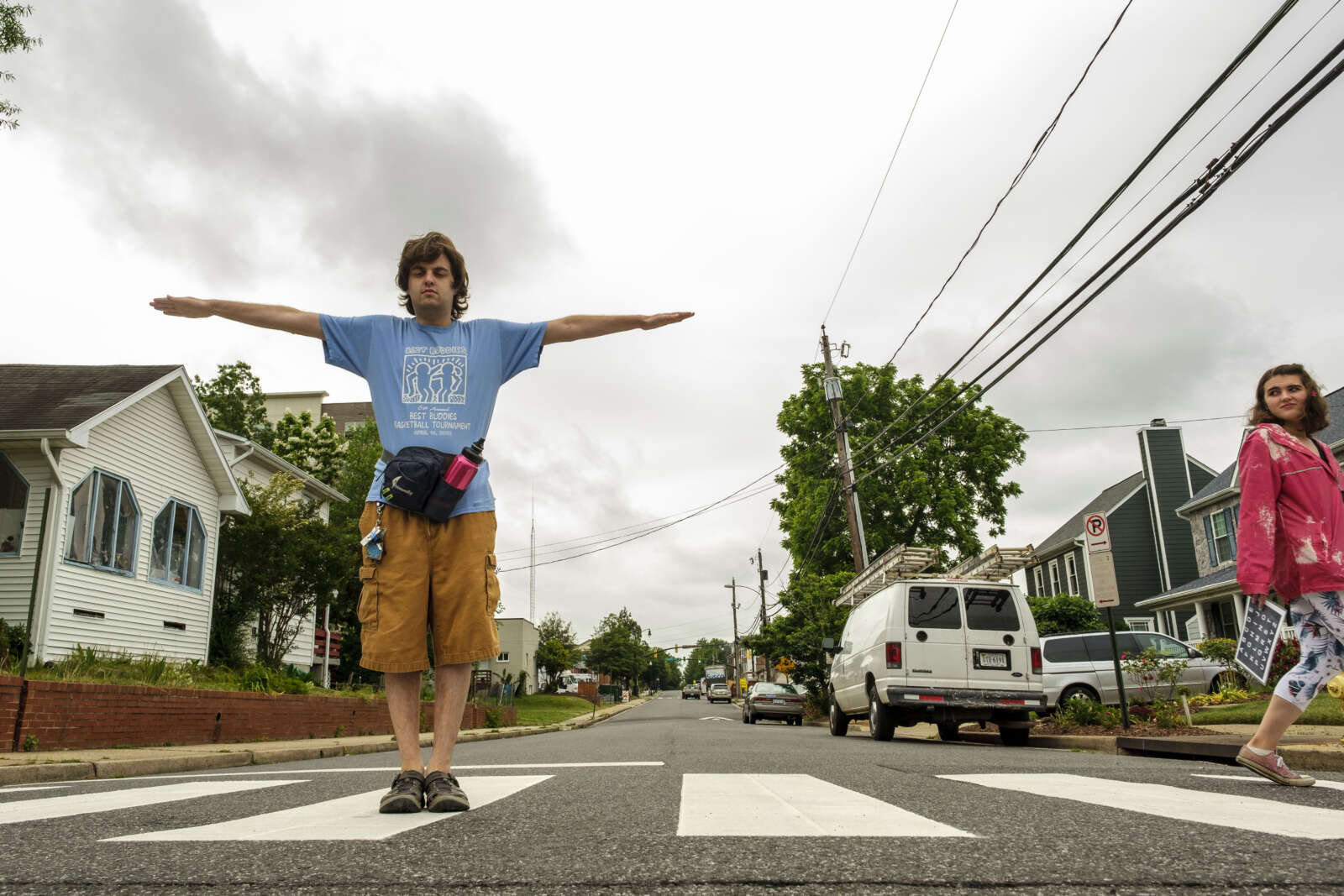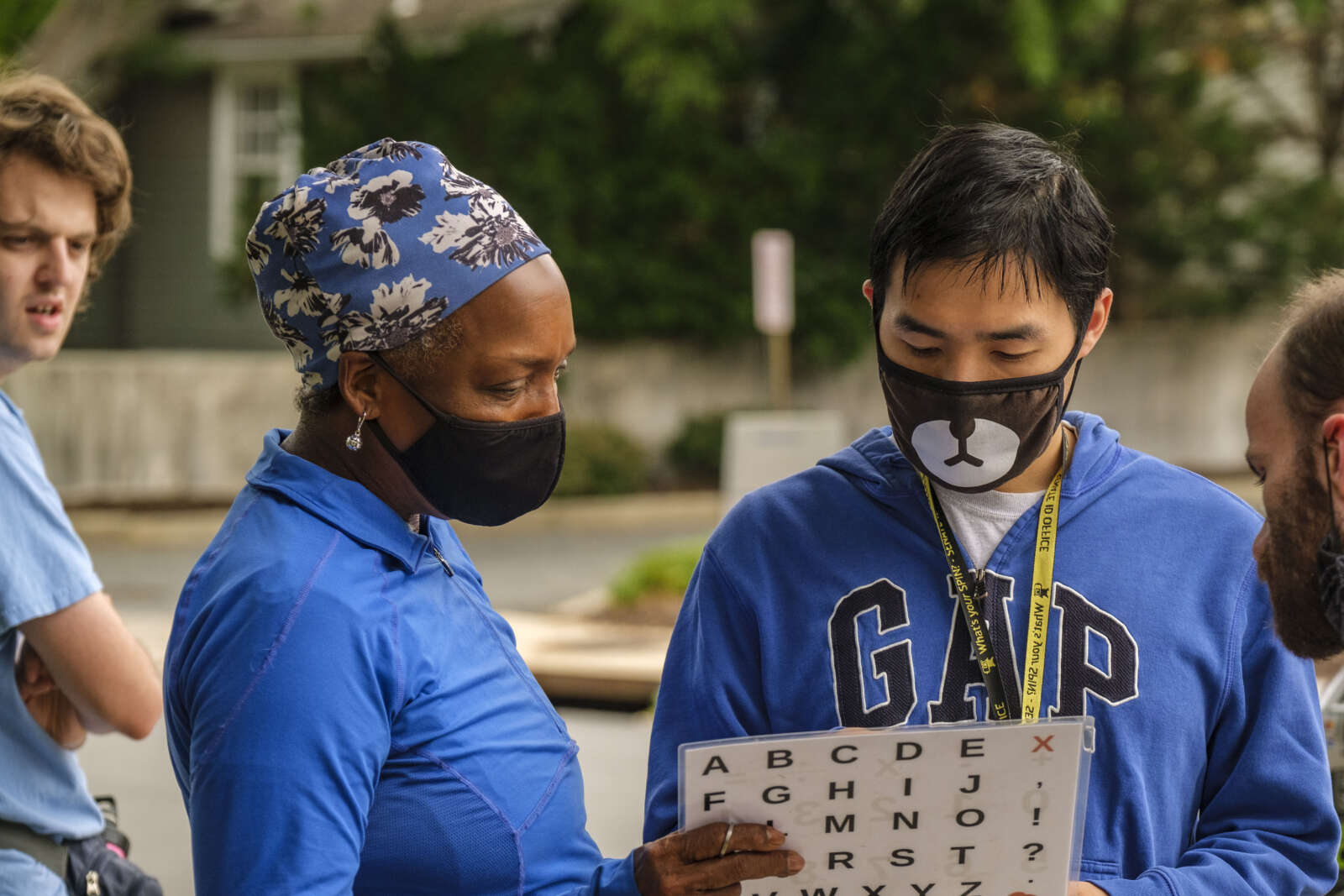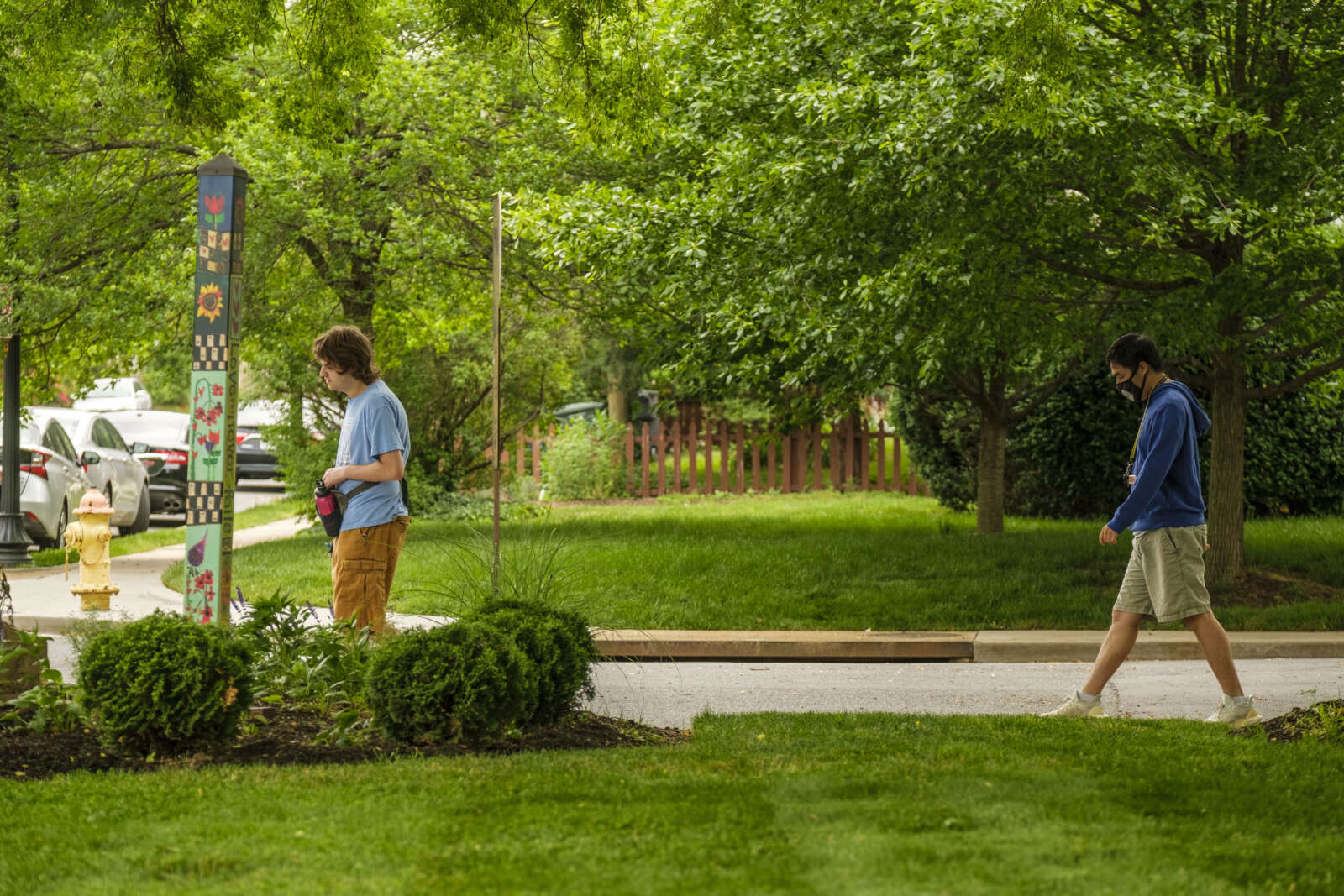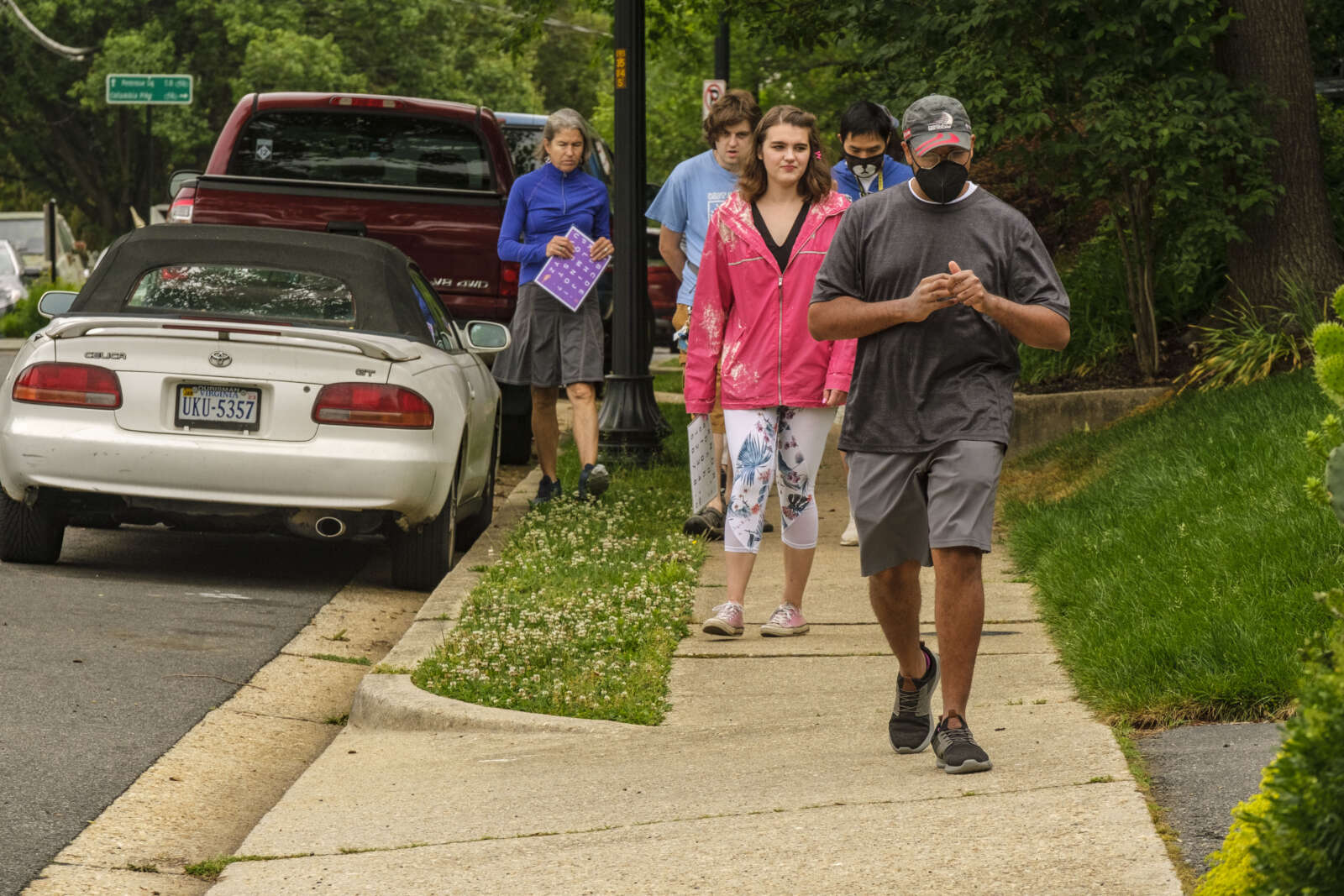Twice a day, a group of adults with disabilities can be seen walking near Gilliam Place, an affordable housing building where they live.
On a Tuesday morning in May, they showed ARLnow their stomping grounds. A recent rain turned everything a bright green, and cicadas droned in the background.
This little community on Columbia Pike was the first to be established by the volunteer-run nonprofit Our Stomping Ground, which connects adults with intellectual and developmental disabilities to independent living opportunities and helps them build communities in Northern Virginia.
On the walk, resident Max Loftis, who has autism, said living at Gilliam Place is a great experience.
“I get a lot of opportunities to cook and I’ve made great meals,” he said. “I like the feeling of independence.”
In a different decade, Loftis could have been placed in a state-run institution where he may have been deprived of the ability to cook for himself.
The Commonwealth used to institutionalize people with disabilities across five state-run, hospital-like facilities that housed 6,000 people. According to some reports, residents lacked the autonomy to choose their meals or what to watch on television. In 2011, the DOJ concluded an investigation that found Virginia was one of five states denying residents their right — enshrined in the Americans with Disabilities Act — to community-based services in integrated settings.
In 2012, the Commonwealth settled with the DOJ for $2 billion, agreeing to close four of its five institutions and provide for people with disabilities in more inclusive ways.
The friends at Gilliam Place have an array of disabilities. Some cannot speak, or cannot control what they say, and will instead point to letters on a chart to communicate. One developed a tic disorder from a traumatic brain injury. But they all participate in activities with other building residents and members of the disability community, take on jobs, and live in apartments with a sibling, an aide or someone with a complementary disability.
“We have a long way to go, but this is what it should look like,” said Our Stomping Ground (OSG) Executive Director and Founder Paula Manion, who joined the friends that day.
OSG works with Arlington County and the state to identify people with intellectual and developmental disabilities who are ready to move into independent living. It also works with local affordable housing developers to find units that have been set aside for people with disabilities.
The nonprofit is building a similar community at Queens Court, a new affordable housing complex in Rosslyn. Later this year, The Waypoint at Fairlington in Alexandria will debut its community and two other buildings in Northern Virginia that are set to open in 2023.
“We’re serious about demonstrating that we’re about improving the lives of our kids and everyone in the building,” said Donna Budway, who organizes activities at the apartment building and with the larger disability community. “This is the most inclusive experience they’ve had in their lives — more than schools, preschool and church.”
Manion founded the nonprofit as City Center NOVA in 2019, one year after she and her husband began looking for a place their adult son could live independently. Despite having a full-time job, he did not make enough money to live on his own, and he could not drive. They modeled City Center on a community in Rockville, Maryland, and renamed the organization “Our Stomping Ground” last November.
Ben McGann, 25, was part of the first group to move into Gilliam Place in December 2019, after the apartment building opened in August. He has known fellow residents Emma Budway (Donna’s daughter) and Huan Vuong since Pre-K. Both he and Vuong have autism and are non-verbal, while Emma is an unreliable speaker, meaning what she says and what she actually would like to communicate are different.
When Ben aged out of school-provided services, his mother Bertra thought he would always live with her. After learning how to communicate with a letter board, however, Ben one day told his mother that he wanted to live on his own.
“We were floored,” Bertra said.
Bertra’s original concerns are common among parents. Young adults with intellectual disabilities lose access to public school-provided services at 21, a transition that is so abrupt yet so universal that parents and schools named this moment “falling off the cliff.”
Many parents become full-time caregivers and may not know their options while others are unsure whether their children can live independently. As a result, Donna Budway said she and Our Stomping Ground devote a great deal of time to educating parents about their child’s options after school.
“There is a risk but they have to be able to live their best, fullest lives,” Budway said.
When Ben moved into Gilliam Place with an aide, his family realized the cliff they feared was more like a curb. Then they watched Ben step down and walk on his own.
For Ben, it was simple: “I wanted to have my own apartment,” he said, pointing to each letter. As a job, he works for another OSG resident’s yard maintenance and glass recycling businesses.
“He enjoys the opportunity to make his own decisions,” Bertra said. “Everyone has just enjoyed watching him grow into his independence.”
OSG runs on donations from fundraising but its leaders are searching for federal and state funding sources. Budway said she works with the county to help families navigate the bureaucratic process of finding housing, but she cannot do it on her own forever. With some funding, they could hire program directors and coordinators.
“It’s a positive relationship but it’s unsustainable,” she said.
Manion said governments need grassroots community solutions like OSG, while the nonprofit needs financial support for long-range success.
“We know that governments can’t do it because there are too many broken parts,” she said. “If we do this with government-funded solutions, that’s the way it needs to go.”
At the end of the walk, Vuong used the communication board to share his thoughts.
“I am so grateful for this community,” he said. “Thank you for giving our story a voice.”


